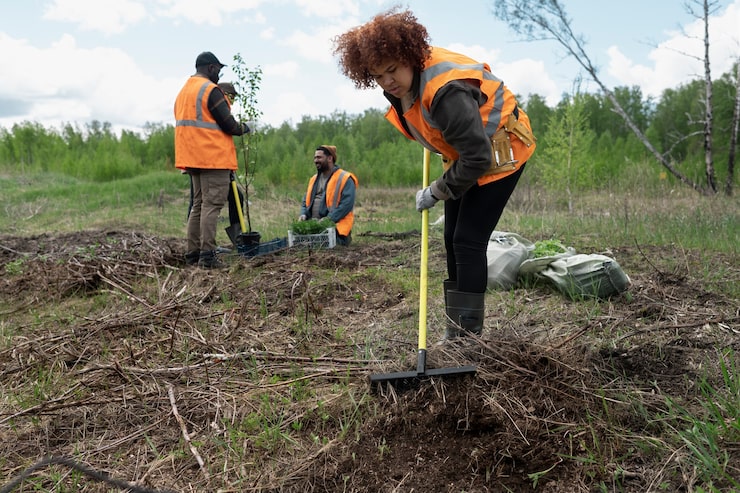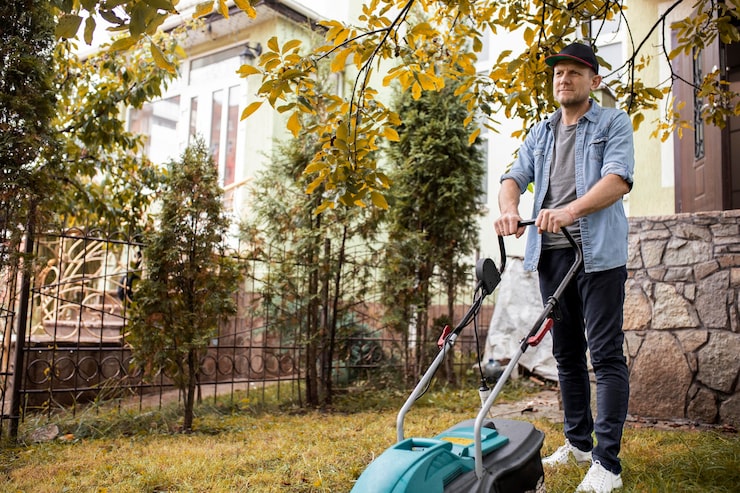Top 5 Materials for Culvert Pipes in Dahlonega: Pros & Cons

What to Expect During a Professional Bush Hogging Service
July 21, 2025
How Excavation Contractors Help Prevent Water Damage on Your Dahlonega Property
August 27, 2025Culvert pipe installation in Dahlonega GA requires material that can withstand the region’s climate conditions. The mountainous terrain and seasonal weather patterns create specific challenges that demand durable, long-lasting solutions. Property owners must understand the available options to make informed decisions about their drainage infrastructure.
The right culvert pipe material can mean the difference between decades of reliable service and costly replacements. Each material offers distinct advantages and limitations that affect performance, longevity, and overall value for your investment.
Concrete Culvert Pipes
Concrete culvert pipes remain a popular choice for many Dahlonega properties due to their exceptional strength and durability. These pipes handle heavy loads effectively, making them ideal for driveways and areas with vehicle traffic. The material resists crushing forces and maintains structural integrity under significant weight.
The manufacturing process creates a smooth interior surface that promotes efficient water flow and reduces debris accumulation. Concrete pipes typically last 50-100 years with proper installation and maintenance, providing excellent long-term value for property owners.
However, concrete pipes present certain drawbacks. Their substantial weight requires heavy equipment for installation, increasing labor costs and project complexity. The material can crack under extreme temperature fluctuations, particularly during harsh North Georgia winters. Additionally, concrete pipes are susceptible to chemical erosion from acidic runoff or certain soil conditions.
Installation costs tend to be higher due to equipment requirements and the need for specialized handling. The rigid nature of concrete makes it less suitable for areas with significant ground movement or settling.
High-Density Polyethylene (HDPE) Pipes
HDPE pipes offer excellent flexibility and chemical resistance, making them suitable for various soil conditions found throughout Dahlonega. The lightweight nature of these pipes simplifies transportation and installation, reducing overall project costs and timeline.
The smooth interior surface of HDPE pipes promotes efficient water flow and resists root intrusion, a common problem in wooded areas. These pipes can flex with ground movement without cracking, making them ideal for areas prone to settling or frost heave.
HDPE pipes demonstrate excellent resistance to chemicals, acids, and alkalis that might be present in runoff water. The material maintains its properties across a wide temperature range, performing well in both summer heat and winter cold.
The primary limitation of HDPE pipes involves their load-bearing capacity. While suitable for residential applications, they may not handle the same heavy loads as concrete alternatives. UV exposure can degrade the material over time if not properly buried or protected.
Cost considerations often favor HDPE pipes due to lower material costs and simplified installation requirements. However, in high-traffic areas or locations requiring maximum structural strength, other materials might prove more appropriate.
Corrugated Metal Pipes
Corrugated metal pipes, typically made from galvanized steel or aluminum, provide a balance between strength and cost-effectiveness. The corrugated design increases structural strength while maintaining reasonable flexibility for ground movement accommodation.
Metal pipes offer excellent load-bearing capacity, making them suitable for driveways and areas with heavy equipment access. Installation is relatively straightforward, and the pipes can be cut to custom lengths on-site, reducing waste and improving project efficiency.
Galvanized steel pipes provide superior strength but may be susceptible to corrosion over time, particularly in areas with acidic soil or water conditions. Aluminum options offer better corrosion resistance but at a higher initial cost.
The corrugated interior surface can catch debris more readily than smooth-walled alternatives, potentially requiring more frequent maintenance. Additionally, metal pipes may produce noise during heavy water flow, which could be a consideration for residential installations near living areas.
Polymer Concrete Pipes
Polymer concrete combines the strength benefits of traditional concrete with improved chemical resistance and reduced weight. These pipes resist many of the chemical and environmental factors that can degrade standard concrete over time.
The material offers excellent structural strength while weighing significantly less than traditional concrete, simplifying installation requirements. Polymer concrete pipes resist acid corrosion and provide smooth interior surfaces for optimal water flow.
Manufacturing processes allow for precise dimensional control and consistent quality. The pipes can be designed with specific strength requirements to match individual project needs.
Cost considerations typically place polymer concrete pipes at a premium compared to standard concrete options. However, the improved performance characteristics and reduced installation costs can offset the higher material expense over the pipe’s service life.
Clay Tile Pipes
Clay tile pipes represent a traditional option that continues to find applications in specific situations. The natural material offers excellent chemical resistance and will not corrode or degrade from most environmental factors.
Clay pipes provide smooth interior surfaces that resist root intrusion and maintain consistent water flow characteristics. The material is environmentally friendly and can last for decades when properly installed and maintained.
However, clay pipes are brittle and can crack under heavy loads or ground movement. Installation requires careful handling and proper bedding to prevent damage. The pipes are also susceptible to damage from freeze-thaw cycles if water remains standing in the system.
Making the Right Choice
Selecting the appropriate culvert pipe material requires evaluation of specific site conditions, load requirements, and budget considerations. Professional culvert pipe installation in Dahlonega GA involves assessing soil conditions, drainage patterns, and long-term maintenance requirements.
Consider factors such as traffic loads, soil chemistry, groundwater conditions, and local building codes when making material selections. A qualified contractor can provide site-specific recommendations based on these variables and help ensure proper installation for optimal performance.



